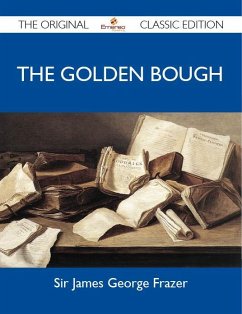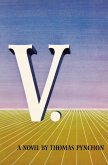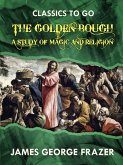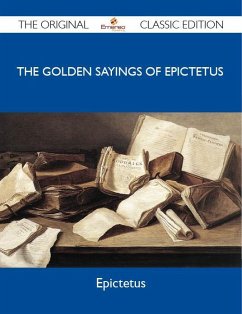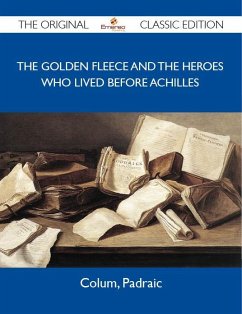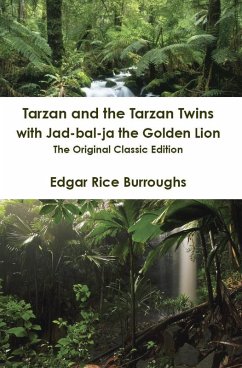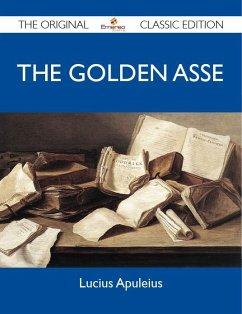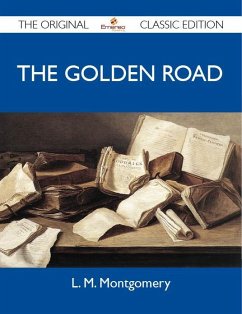Frazers classic The Golden Bough may justifiably be called the foundation that modern anthropology is based on. While it has been discredited in some areas since its 1st publication, it has stood the test of time remarkably well. Its still the best book known of to explain the origins of magical and religious thought to a new student of comparative religions. Especially suggest it to anyone interested in mythology, supernatural magic or religion, especially any of the modern neo-pagan religions. More than one critic has said that it should be required reading for everyone.
Originally, Frazer sought to explain the strange custom at an Italian sacred grove near the city of Aricia. He wanted to know why it was custom there for a priest of Diana to continually guard a sacred tree with his life. Why was it required that this pagan priest murder anyone who dares to break a branch from the tree and why were so many willing to risk their lives to do so? What power did this broken branch have that made it a symbol of the priests own coming death? Why could the priest only be relieved of his position by being ritually murdered and who in their right mind would strive to take his place?
What Frazer discovered in his search for answers went well beyond what he expected to find. He very quickly found himself surrounded by ancient pagan beliefs and magic rituals that were as old as mankind and just as widespread. He slowly reveals to us, by way of hundreds of examples, that ancient or primitive man was bound up in a never ending web of taboos and restrictions that regulated his existence here on earth. Every move, spoken word or even thought could swing the powers of the divine for or against pagan man. Every action was bound by religious code and any mistake could invoke supernatural retribution. The entire world, it seemed, was a reflection of the mystic other world that pagan man worshipped and everything here was symbolic of something there.
What emerges from this collection of superstition and folktales isnt a chaotic mess of mumbo-jumbo but is instead a fully expounded religious system. Frazer shows again and again that these traditional customs and continuations of ancient rites are the basis for a religious system pre-dating any of our own. We find that in this system man can not stand apart from nature or the world. Nor can he commit any action without its usual equal but opposite reaction. Eventually, we learn of the powerful but frightening association between a kings fertility and his lands well-being. Lastly, we learn that its not always good to be king and just what sort of horrible price one must pay to be king for a day.
But more than all of this Frazer is commenting on our own times and our own beliefs. The Golden Bough isnt simply about ancient pagan religious ideas for their own sake. The book provides and explains these ideas so we can see how they are still in operation even today. Primitive pagan beliefs and symbolism are with us daily, besides the obvious Christmas tree and Easter eggs. Behind his exhaustive examples and explanations of mystic or secret magic rituals Frazer is actually commenting on our own Judeo-Christian religions. A careful reading between the lines reveals what Frazer was afraid to state bluntly in 1890. That idea is that all religions, even our own, are based on the same basic pagan ideas of sympathetic and contagious magic. Despite advancements in science and knowledge and even despite spiritual advancements in religion and philosophy, were still trying to comprehend the divine with the same tools our ancestors used thousands of years ago.
Originally, Frazer sought to explain the strange custom at an Italian sacred grove near the city of Aricia. He wanted to know why it was custom there for a priest of Diana to continually guard a sacred tree with his life. Why was it required that this pagan priest murder anyone who dares to break a branch from the tree and why were so many willing to risk their lives to do so? What power did this broken branch have that made it a symbol of the priests own coming death? Why could the priest only be relieved of his position by being ritually murdered and who in their right mind would strive to take his place?
What Frazer discovered in his search for answers went well beyond what he expected to find. He very quickly found himself surrounded by ancient pagan beliefs and magic rituals that were as old as mankind and just as widespread. He slowly reveals to us, by way of hundreds of examples, that ancient or primitive man was bound up in a never ending web of taboos and restrictions that regulated his existence here on earth. Every move, spoken word or even thought could swing the powers of the divine for or against pagan man. Every action was bound by religious code and any mistake could invoke supernatural retribution. The entire world, it seemed, was a reflection of the mystic other world that pagan man worshipped and everything here was symbolic of something there.
What emerges from this collection of superstition and folktales isnt a chaotic mess of mumbo-jumbo but is instead a fully expounded religious system. Frazer shows again and again that these traditional customs and continuations of ancient rites are the basis for a religious system pre-dating any of our own. We find that in this system man can not stand apart from nature or the world. Nor can he commit any action without its usual equal but opposite reaction. Eventually, we learn of the powerful but frightening association between a kings fertility and his lands well-being. Lastly, we learn that its not always good to be king and just what sort of horrible price one must pay to be king for a day.
But more than all of this Frazer is commenting on our own times and our own beliefs. The Golden Bough isnt simply about ancient pagan religious ideas for their own sake. The book provides and explains these ideas so we can see how they are still in operation even today. Primitive pagan beliefs and symbolism are with us daily, besides the obvious Christmas tree and Easter eggs. Behind his exhaustive examples and explanations of mystic or secret magic rituals Frazer is actually commenting on our own Judeo-Christian religions. A careful reading between the lines reveals what Frazer was afraid to state bluntly in 1890. That idea is that all religions, even our own, are based on the same basic pagan ideas of sympathetic and contagious magic. Despite advancements in science and knowledge and even despite spiritual advancements in religion and philosophy, were still trying to comprehend the divine with the same tools our ancestors used thousands of years ago.
Dieser Download kann aus rechtlichen Gründen nur mit Rechnungsadresse in A, D ausgeliefert werden.

